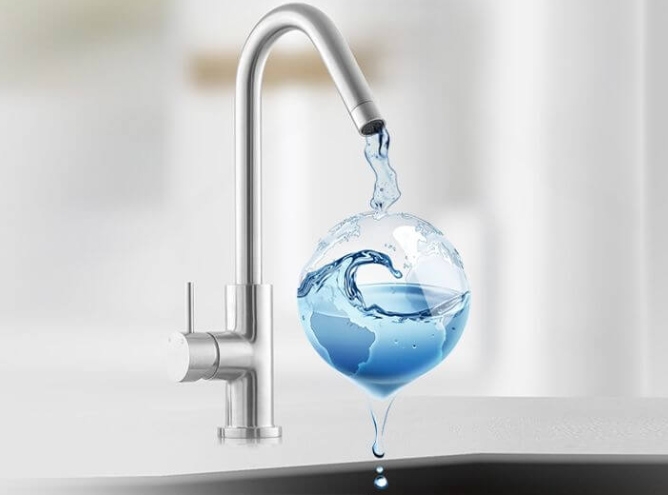


Here, we define a sustainable water resource as a flux of water that is managed with the objective of maintaining the availability and quality of water for as long as the current climate prevails. Based on this definition, we identify three main threats to sustainability of water resources: climate change, water pollution, and the adverse impacts of water resource management practices. These general concepts are illustrated using the example of Saudi Arabia. A framework for water resources management has been proposed for countries in arid regions, where the demand on water exceeds sustainable water resources. The objective of this framework is to close the gap between demand and sustainable water resource by developing new sustainable resources. The cornerstone in this framework is a water pricing system that links the price of water to the marginal cost for developing new sustainable water resource. The adoption of such a system would result in reducing demand as well as facilitating the development of new water technologies that are likely to enhance sustainable water resources.
DEFINITION OF SUSTAINABLE WATER RESOURCES
We define a sustainable water resource as a flux of water that is managed with the objective of maintaining the availability and quality of water for as long as the current climate prevails. In presenting this definition, we would like to highlight four related issues:
First, we emphasize that a sustainable water resource is a flux of water that reflects the natural rate of replenishment of the water resource through the hydrological cycle. A sustainable water resource is not a stored volume of water. This distinction is particularly important when considering groundwater aquifers, natural lakes, and man-made for reservoirs. The value of any groundwater aquifer as a water resource system is directly proportional to the rate of recharge to the aquifer. Here, the hydrologic concept of the aquifer as a water reservoir is indeed more relevant than the geologic concept of the aquifer as a water holding formation. Similarly, the inflow to natural lakes and man-made reservoirs is the important variable to consider in evaluating the corresponding sustainable water resource. Second, in assessing sustainability of